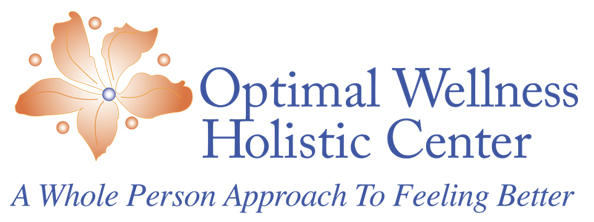Spring is here! How can you tell? You see green pollen everywhere: on your car, mailbox and porch. For some people, they know when they start experiencing congestion, stuffiness, itchy eyes/nose/skin, sneezing, coughing, sore throat, and headaches. Symptoms of seasonal allergies are an indication that the immune system is oversensitive to safe environmental particles. Below are natural strategies to support your immune response and help you get some relief! It’s best to start a few weeks early to allow your body and immune system to calm down before it’s bombarded with pollen.
1. Beating allergies includes an anti-inflammatory diet and lifestyle.
Remove inflammation by removing inflammatory foods like gluten, dairy, sugar, peanuts, soy, corn, and vegetable oils (safflower, corn, soy, canola). Consume whole foods rich in antioxidants and omega-3 fatty acids. Include lots of non-starchy vegetables like kale, collards, broccoli, and spinach. Eat organic free-range meat, poultry, and wild fish (salmon, sardines, anchovies). Eat a healthy amount of good fats, such as avocado, coconut oil, and extra virgin olive oil. Add natural probiotics such as fermented vegetables and kombucha tea. Caring for your body with nutrient-dense foods gives your immune system the ability to repair itself, bringing it back into balance so it can fend off common allergies in your environment.
2. Local Raw Honey (Bee Pollen)
Taking a tablespoon of local, raw honey every day helps your body build a tolerance to the local pollen that is affecting your sinuses. Try some honey by stirring a tablespoon into tea, putting some in your smoothies, or adding them to oatmeal with cinnamon. Honey is powerful because it contains bee pollen and enzymes that help ward off infections and allergies and boost immunity.
3. Apple Cider Vinegar (ACV)
High-quality apple cider vinegar can be found in most grocery stores and can help break up mucus and support lymphatic drainage. Drinking a glass of water with a teaspoon of ACV and some fresh lemon juice is one of the best ways to wake up every morning. I add a little Himalayan or Celtic salt and it is also very thirst-quenching. At the first sign of an allergy attack, you can put one teaspoon of ACV in your neti pot solution for a natural “sinus flush.”
4. Neti Pot
Neti pots provide an excellent natural remedy for allergies and many respiratory conditions because they help clear the sinuses and remove congestion. Make sure that the water is distilled and as sterile as possible. Avoid using use tap water because it is full of chlorine and fluoride and it can actually irritate your sinuses. If you don’t want to use a neti pot, you can also try a saltwater sinus rinse by mixing sea salt with warm water, using a bulb, and squeezing the water up one nostril at a time.
5. Quercetin/ Stinging Nettle
Quercetin is an antioxidant naturally found in plant foods, such as onions/shallots, apples, citrus fruits, berries, green leafy vegetables, and cruciferous vegetables (like broccoli or cauliflower) as well as green tea. As a natural antihistamine, quercetin modulates an exaggerated immune response and helps control allergy symptoms. Quercetin can also be found as a supplement.
Like quercetin, stinging nettle leaf is a also natural antihistamine that decreases inflammation and helps modulate a hyperimmune response. It can be found as a supplement and as a loose leaf tea.
6. Probiotics
Probiotics play an important role in the gut microbiome and immune coordination. Studies have shown that supplemental probiotics are very effective at reducing allergy symptoms. Studies have also found that women who take probiotics regularly during pregnancy reduce their children’s risk of developing allergies. Some people find a lot of relief from using probiotics.
7. Vitamin D3
Vitamin D3 is crucial for immune coordination in the body. Low levels of vitamin D3 are associated with frequent illnesses, chronic inflammation, and allergies. Vitamin D is created in your skin in response to sun exposure. Most people should aim to get 15-20 minutes of daily sun exposure. The best natural sources of Vitamin D3 in food are fatty fish (salmon, sardines, herring, mackerel), raw cheese, egg yolks, and liver. However, it’s difficult to obtain adequate Vitamin D from the sun and food, especially if you’re already deficient. You can get a blood test to know what your level is. The optimal range is 60-80+ ng/mL. If you are deficient, it is best to supplement Vitamin D3 with Vitamin A, K2, and magnesium because they work synergistically together.
I hope you’re able to incorporate a few of these natural strategies to get some relief from seasonal allergies. If you’re still having issues after following these tips, you’re welcome to contact us so we can help you get to the root of your allergy symptoms.
